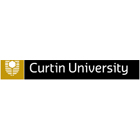Bachelor of Science (Midwifery)
Bachelor of Science (Midwifery)
Gain the skills for a rewarding career in women’s health, caring for mothers and babies through pregnancy, birth and beyond. In this course, you will gain the comprehensive knowledge and skills required to practise midwifery. Your studies will include topics across biological, physical, psychological and social sciences. You’ll also complete…
Categories
COURSE DESCRIPTION
Gain the skills for a rewarding career in women’s health, caring for mothers and babies through pregnancy, birth and beyond.
In this course, you will gain the comprehensive knowledge and skills required to practise midwifery.
Your studies will include topics across biological, physical, psychological and social sciences.
You’ll also complete supervised clinical placements in maternity units and follow individual women through their childbirth journey through the ‘continuity of care experience’ (CCE) approach.
Upon graduating, you’ll be qualified to work in metropolitan and rural healthcare settings such as antenatal clinics (including specialty clinics for adolescent, high-risk and diabetic women), labour and birth suites, postnatal wards, special-care nurseries, breastfeeding clinics, midwifery group practice and birth centres.
This course is suitable for school leavers and for mature-age students. The current national shortage of midwives means that you can expect excellent career opportunities across Australia.
What jobs can the Bachelor of Science (Midwifery) course lead to?
Careers
Midwife
Industries
Healthcare
Government and non-profit organisations
What you’ll learn
Demonstrate culturally safe, values-led care for all women and babies through the development of personal and professional skills for cultural competence
Apply midwifery knowledge and skills within dynamic and complex midwifery contexts
Discuss the importance of skilled professional midwifery care for women and babies in an international context
Analyse scientific literature and health standards; synthesise and integrate into woman centred-care; engage with health and scientific information when seeking, evaluating and using data related to midwifery care and clinical decision-making
Demonstrate evidence-based decisions on therapeutic interventions by utilising current technology to inform midwifery practice for the delivery of safe and effective care
Communicate effectively, to meet the woman’s needs, establish collegial relationships with interprofessional teams and promote midwifery within the community in the broader contexts of primary healthcare and public health policy
Demonstrate critical reflection and the ability to enhance the development of self and others; demonstrate leadership skills
Examine current midwifery health legislation; work in an autonomous accountability framework within the scope of ethical and legal midwifery practice as a member of interprofessional teams
Identify opportunities for lifelong learning and enhance personal knowledge and skills to further contribute to the midwifery profession
REQUIREMENTS
You’re considered a high school leaver if you:
Completed year 12 in Australia or overseas in the past two years, or
Completed TAFE or VET studies in the past two years.
IELTS (International English Language Testing System) – Listening, Reading, Writing, and Speaking – 7.0; Overall band score – 7.0
EDUCATIONAL INSTITUTION
Curtin University is Western Australia’s largest and most culturally diverse university with Australia’s third largest international student population. Around 60,000 students from more than 130 countries study a Curtin degree, at locations including Perth, Margaret River, Kalgoorlie, Sydney, Malaysia and Singapore. Our cultural diversity adds a rich and valuable dimension to the campus atmosphere, preparing all graduates to live and work effectively in an increasingly global environment. We offer a range of industry-aligned undergraduate and postgraduate courses in business, humanities, health, engineering and related sciences. We also have a long-standing focus on Aboriginal and Torres Strait Islander education and culture, supported by our Centre for Aboriginal Studies.Curtin is widely recognised for its practical research that is focused on solving timely, real-world problems. In recent years our research activity has grown significantly, driving our rapid rise up the international university rankings.As a university that never settles, we will continue to develop existing partnerships and establish new ones in areas relevant to our research and teaching.




